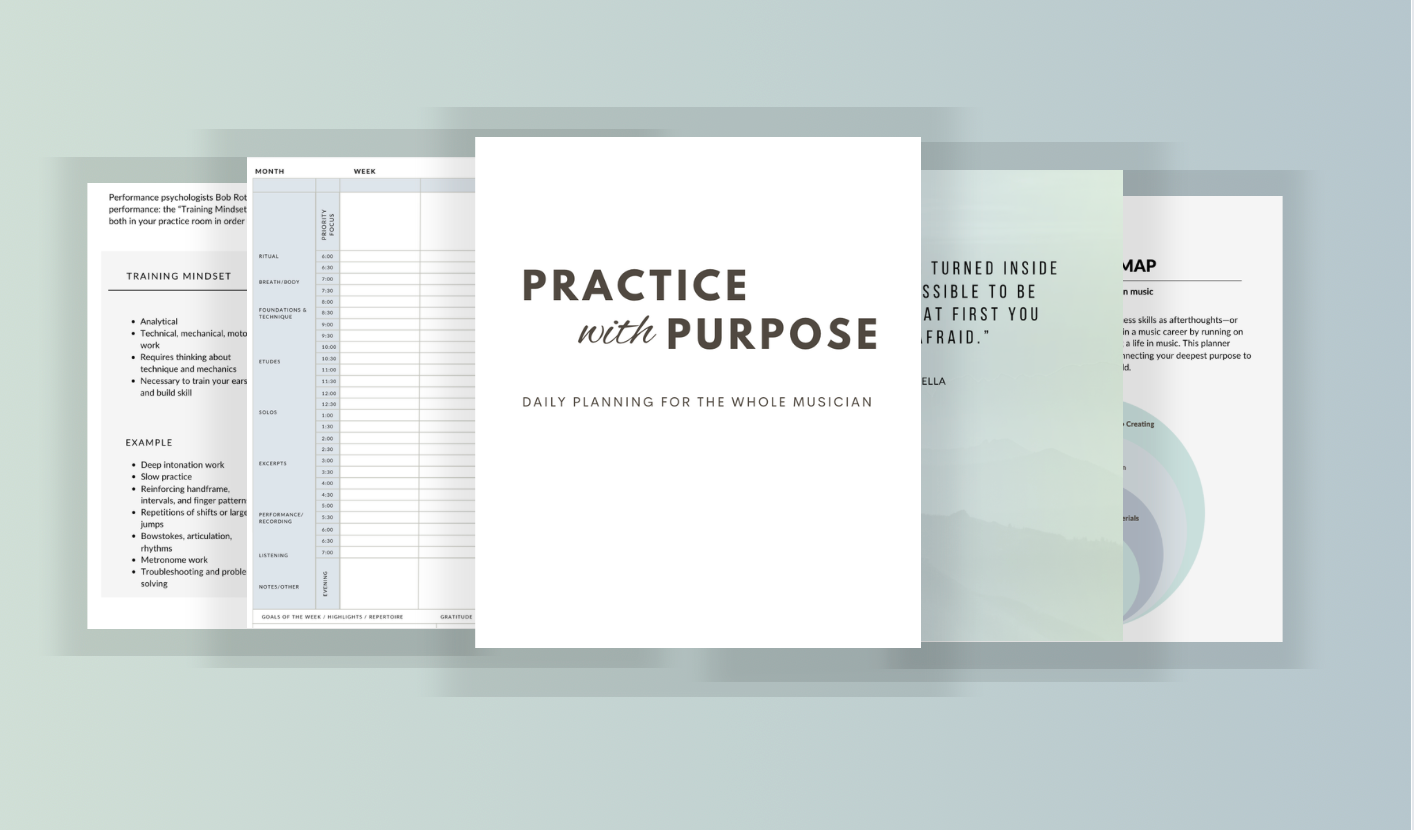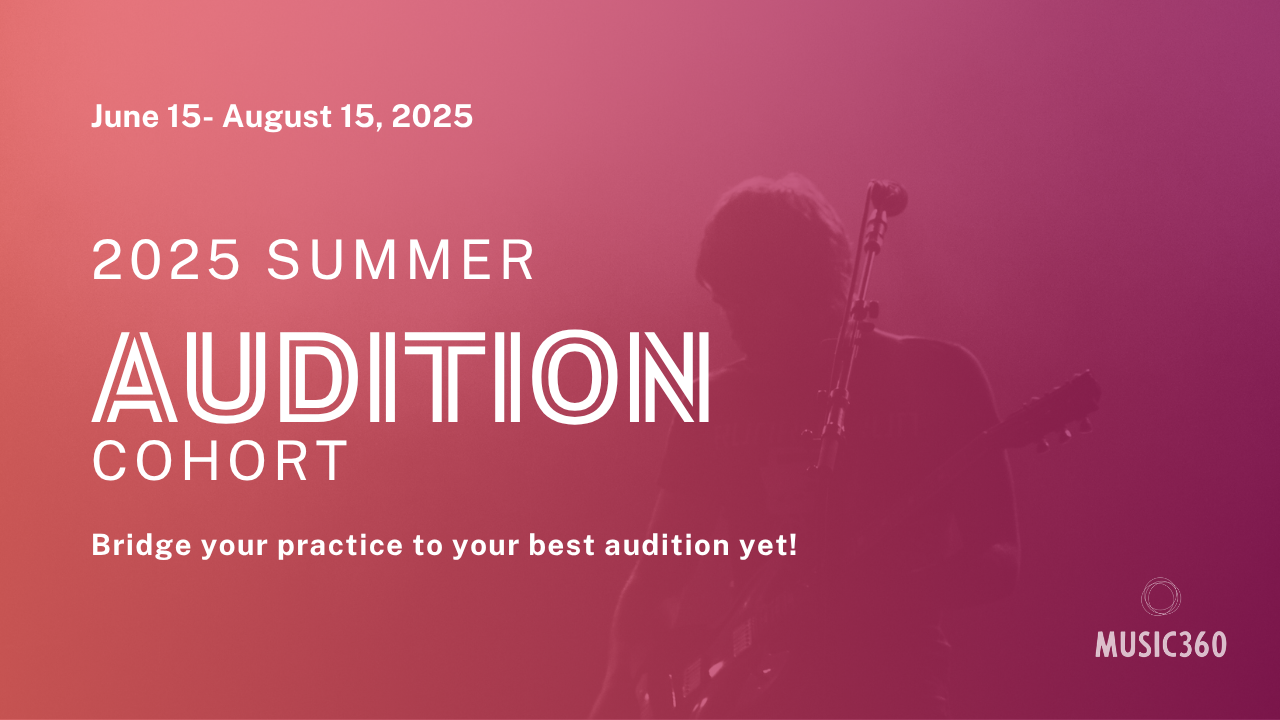What I wish I’d learned…

Hi there, it’s Zoe here with a few reflections to share with you…
I recently graduated with a bachelor’s degree in music. I LOVED my time in music school and learned SO much about invaluable technique, repertoire, composers, performance, and standards. Guess what I realized in the months since walking away with that degree?
There was also so much I didn’t learn. No fault to the school or system, but sometimes life is a better teacher than a university!
Here are a few tidbits I've picked up from my experience after graduating — particularly in regards to approaching ensemble playing and looming deadlines. Better late than never, and now you get a head start on secrets I didn’t have!
Approaching ensemble rehearsals…
- Your attitude goes a long way. Professors and colleagues can tell when you care (or when you don’t), and people are more likely to be forgiving when you demonstrate that you’re giving it your best.
- Preparation is key. We’re not talking about playing your part perfectly. Score study, understanding where your part fits into the others, making sure you can count the rests and come in on time, looking at tricky rhythms and passages, understanding the underlying form of the piece, and listening until you can hear the piece in your head — these position you to lead and contribute well to every rehearsal.
- Bring your own energy to the room. If you try too hard to match someone else’s energy you end up being someone you’re not, and that is exhausting. The people who respect you will respect you for who you actually are.
- Important discussions for making decisions are often better done in person than over group chats. You can read body language and offer alternate options much more efficiently.
- Embarrassing mistakes are a very effective learning tool. Instead of approaching mistakes as something to be avoided (even though it hurts!), approach rehearsals as a way to test your limits and find what isn’t working so you don’t make the same mistake in the future.
Approaching deadlines (ahhhhh!)…
- Make a plan. Map out your long-term deadlines on a calendar. Break down the big deadlines into monthly and weekly intentions. Then set bite-sized goals for each day based on where you want to be each week. Schedule in flex days for unexpected events and rest days for your mental health! Finally, instead of ruminating about your deadline, just do what’s in your plan for today. You know it will take you where you need to go.
- The best way to prepare for something stressful is to do something that makes you happy every day. Your capacity to learn increases when you’re happy, and so does your motivation to do the same thing tomorrow.
- Evaluate, don’t stress. When you feel rushed it’s easy to jump into playing and stop analyzing. Take your time and keep your rational side on.
- Trust the process. Stuff may or may not stick the first time you work on it. An exercise your teacher gave you may seem frustratingly nonsensical. Spots may only work at an extremely slow tempo. But your brain is learning and consolidating, even when you’re not actively at the task, and if you’re putting the work in it will come together when it’s time to test.
- You’re here for the long run. The work you put in now is not only to serve you now — it’s to serve you two weeks, two months, two years from now. 5 minutes of work on this today will cumulate when you do 5 minutes tomorrow, the day after that, and the day after that.
Oh, by the way… if you’d like to gain more wisdom outside of what conventional music schools typically offer, you’d love the THRIVE Professional Development & Entrepreneurship Certificate Program! This program is designed for dedicated musicians like you who are hungry for practical applications of a music career in the real world — stuff like this that you don’t always see in conservatories.
Click here for all the juicy details!


